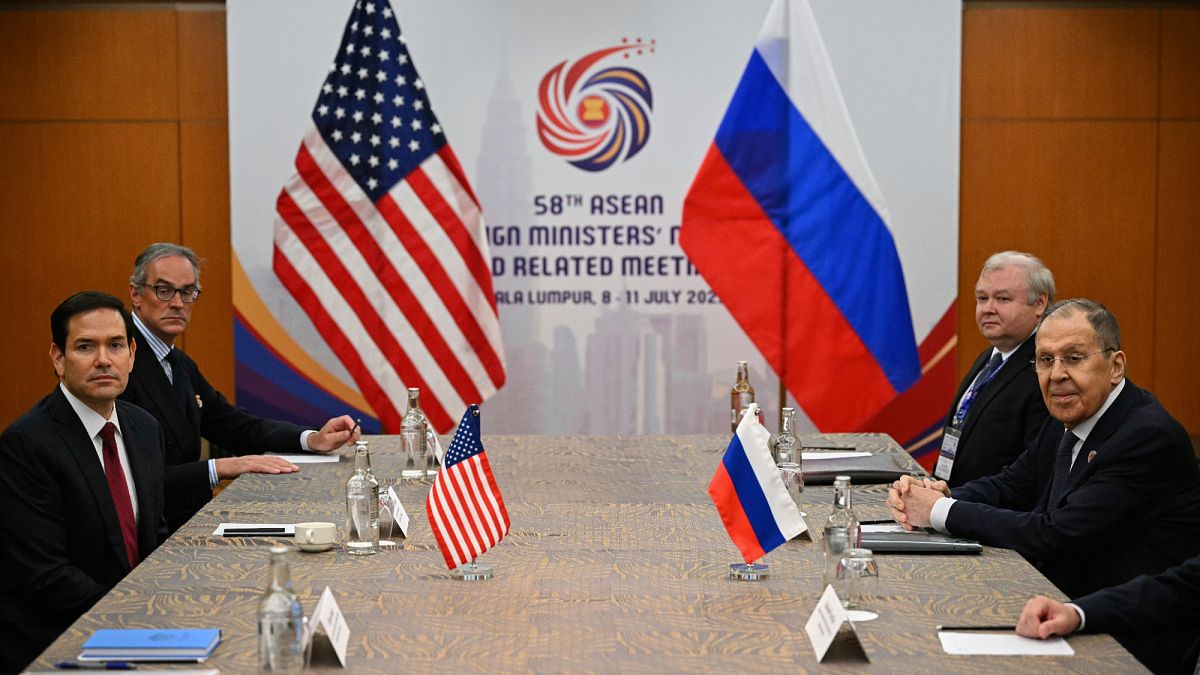

In a climate where international relations and strategic negotiations are continually evolving, recent developments signal a potential turning point in efforts to mitigate conflict impacts and foster recovery. A measured approach by global leaders is encompassed in various initiatives designed to address current geopolitical challenges and cultivate future resilience, offering a wave of hope and positive progress.
A notable interaction was highlighted during discussions between US Secretary of State Marco Rubio and Russian Foreign Minister Sergey Lavrov. Despite lingering frustrations over inflexibilities concerning the Ukrainian crisis, a renewed dialogue has emerged, centering on innovative strategies that might pave the way for attainable peace. Secretary Rubio expressed President Trump’s mixed sentiments of disappointment and hope, emphasizing that constructive engagement could eventually lead to scalable solutions in the region. The ongoing conflict necessitates a shift in dynamics, underscoring a willingness to explore new approaches towards peace.
In parallel, European stakeholders have actively engaged in promoting economic restoration and structural resilience through the Italy-Ukraine Recovery Conference. This significant two-day event aims to secure financial pledges surpassing €10 billion, dedicated to revitalizing Ukraine’s infrastructure. Italian Prime Minister Giorgia Meloni underscored this initiative’s potential to spearhead sustainable reconstruction, binding the economic interests of nations with the welfare and prosperity of Ukraine.
Complementing these efforts, the European Union has introduced a comprehensive megafund with an outlook toward post-war reconstruction in Ukraine. As delineated by European Commission President Ursula von der Leyen, the fund strives to mobilize both public and private sectors, focusing on energy, transportation, and essential raw materials. This financial undertaking represents a robust strategy to ignite industry and innovation, further consolidating the foundational pillars necessary for enduring stability and growth.
The broader narrative of peace and recovery witnesses yet another milestone with Armenia and Azerbaijan nearing a historic peace agreement. The ongoing conflict between the two nations seemed insurmountable until recent global political shifts, primarily influenced by the situation in Ukraine, redefined alliances and priorities. Peace discussions held in Abu Dhabi signal a transformative phase where age-old animosities give way to cooperative coexistence, effectively reducing Russia’s influence in the South Caucasus region. This transition, once deemed unattainable, showcases the profound impact of diplomacy and sustained dialogue.
However, alongside these promising developments, European leaders, including Germany’s Friedrich Merz, have reiterated the critical role of the United States in supporting Ukraine’s defensive capabilities. Merz’s call for additional Patriot missile defense systems underscores a continued transatlantic alliance, reinforcing security against ongoing threats. His sentiment reflects a shared responsibility among Western allies to safeguard sovereignty and emphasize collective defense initiatives amid fluctuating geopolitical tensions.
In conclusion, a blend of diplomatic outreach, financial commitment, and strategic defense creates a multifaceted response to the intricate challenges posed by conflicts. While nations work toward peace and reconstruction, these concerted efforts demonstrate a profound commitment to unity, stability, and the collective advancement of global peace. As the international community watches, the seeds of collaboration and understanding planted today offer a hopeful forecast for a harmonious and resilient future.
Source: {link}
